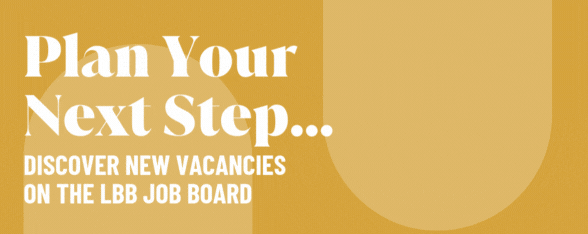
Meet Your Makers: Collective Trauma and Collective Success with Omar Khalifa

Omar Khalifa is a British writer, director and former journalist who cut his teeth in international news. After a postgraduate degree in International Relations at Manchester (UK), Omar created and developed current affairs series and programme strands that were selected at awards ceremonies and recognised worldwide. Fifteen years later, with almost a decade in the commercial industry as a writer, director and EP, Omar has worked on creative campaigns with clients like FIFA, TikTok, Chevrolet, Vodafone and Qatar Airways, gaining attention at festivals including Cannes, New York Festivals, CRESTA, EPICA and the Loeries. His short films, artwork and children’s books have gone on to pick up international awards and acclaim.
LBB> What first attracted you to production - and has it been an industry you’ve always worked on or did you come to it from another area?
Omar> I came into production through journalism. I studied politics and used to write, which got me into web journalism and a job at Al Jazeera English. From writing, I was exposed to multimedia, during a time when Facebook and Twitter were becoming a thing. Citizen journalism, too, and mobile phones shooting better and better imagery. DSLRs that shot incredible video came out - a new cinematic tool for filmmakers like me - and I became the go-to DSLR guy in the newsroom for a while.
LBB> What was your first role in the production world and how did this experience influence how you think about production and how you grew your career?
Omar> I was surrounded by massive talent at Al Jazeera English and I desperately wanted to be a video journalist, to roam and cover stories around the world. I got a job as an assistant producer in programmes, where I was able to shoot second camera, write and build stories with some of the best producers out there.
LBB> How did you learn to be a producer?
Omar> In the thick of it. Making studio shows and documentaries with brilliant people. I’m a borderline millennial, loving the tech world and wanting to grow too fast. I created programme strands and promos. I wrote, edited, voiced and hosted shows all before I hit 30, so I was an itchy one, hungry to bust through a career ceiling, and soon felt that the confines of current affairs weren’t necessarily a place I could do that.
LBB> Looking back to the beginning of your career, can you tell us about a production you were involved in where you really had to dig deep and that really helped you to grow as a producer?
Omar> More than a production, the entire foundation of a company! From AP to COO in the span of a couple months, during a year when I got married, had a child and quit my job. The Film House just had to work. From the first loss-making jobs where we’d overstretched for the greater good, to somehow settling and today the company being ten years old.
LBB> A good producer should be able to produce for any medium, from film to events to digital experience. Do you agree or disagree with this statement? Why/why not?
Omar> I do agree. A producer is a project manager. Problem-solver, optimist and a solutions-driven individual. That goes for film, events, pizza restaurants and financial technology – if you’re in any medium to make it work, you can produce.
LBB> What’s your favourite thing about production and why?
Omar> Collective trauma and collective success. When you’re in the weeds of something and people come up with ideas to get you past the finish line, it’s extremely rewarding.
LBB> How has production changed since you started your career?
Omar> I think we’re on the cusp of one of the biggest changes over the last century…. AI. The job-removing, project-quickening, thought-contributing service that will – hopefully – allow us to focus on doing great creative work somehow.
LBB> And what has stayed the same?
Omar> People, to date. Hence the big change in the face of AI – what it will do to editors, copywriters, musicians, voiceovers and so on.
LBB> What do you think is the key to being an effective producer - and is it something that’s innate or something that can be learned?
Omar> If you’re innately goal-driven with emotional intelligence you can read a room (a set), build confidence in the team, keep the spirits high and the energy positive.
LBB> Which production project from across your career are you most proud of and why?
Omar> A small one. One that took 45 minutes to film. It’s called ‘Maya’ and it’s about a girl with Down’s syndrome. She was a pupil at the Shafallah Center for Children with Special Needs in Qatar at the time of filming. I chose a forest pathway. We followed her walking, thinking, turning and smiling at us. It was that simple. With a cover of Duran Duran’s ‘Ordinary World’ over the top, and text reminding you that she’s phenomenal.
LBB> And in terms of recent work, which projects have you found to be particularly exciting or have presented particularly interesting production challenges?
Omar> The trilogy of INTERPOL films we made over the last few years have been exciting for their content and short film edu-drama nature. It’s not often you’re commissioned by the world’s police to make short films. They have allowed us to flex our dramatic narrative storytelling muscles, but what a challenge to make films about terrorists who want to do bad things. Not always easy to get a location permit.
LBB> Producers always have the best stories. What’s the hairiest / most insane situation you’ve found yourself in and how did you work your way out of it?
Omar> We were making a series of ‘Life Saving Rules’ films for our client, Qatari Diar. One idea I had was to do a one-take towards a flipped-over car in the middle of a highway with a person half hanging out of the car. Through the shot, we see a whatsapp message take place on screen and come to realise we shouldn’t text and drive. The highway hadn’t been handed over from the developers to the ministry of transport yet, so everything was fine. We had a permit, so everything was fine. The other side of the highway, however, had been handed over, and as the general public drove past the epic 12-car pile-up we’d fabricated, they called the emergency services en masse. Lo and behold, they arrived, a convoy of police cars and ambulances. Art department did such a good job, they couldn’t believe it wasn’t real. We were all on the cusp of being arrested. Only with thanks to our first AC having the clarity of mind to timelapse the whole setup did they watch and realise what it was. Filmmaking. He saved the day. Permits or not, sometimes it’s in the little things.
LBB> What are your personal ambitions or aspirations as a producer?
Omar> To create better producers.
LBB> As a producer your brain must have a neverending "to do" list. How do you switch off? What do you do to relax?
Omar> I can be quite hypomanic at times, but I also think you can work your to-do list for both work and pleasure. You should make to-do lists in your personal life, and achieving those goals can feel great and immensely rewarding. I play padel, go paddling and spend as much time as I can with the family.
LBB> Producers are problem solvers. What personally fuels your curiosity and drive?
Omar> Doing good work. So that the people of The Film House, our clients and even the country feel stronger with our content.
LBB> What advice would you give to people who are interested in becoming a producer?
Omar> Nag. And nag again. Keep nagging. People in production companies, and producers in particular, are very busy people. They’re often very nice people. But they’re busy people. So keep emailing, knocking on the door and eventually it’ll crack open.
LBB> From your experience what are the ingredients for a successful production?
Omar> The right people in the right departments. The sum of all the good parts. Familiarity helps too. The Film House has a full production crew under one roof and has for years, we all know each other – grip and gaffer, director and DoP. It creates an amazing environment.
LBB> What’s the key to a successful production-client relationship?
Omar> Being reliable. Being on time. Being personable. Managing and working with them as people rather than a ‘walled entity’. Producing quality work should be the minimum entry point. The portfolio gets you there, the bond keeps you there.
LBB> Producers are naturally hands on - they have to be. How do you balance that in the more managerial role of an EP?
I’m a COO, EP and head of production, as well as a director so the hats are tenfold. There’s nothing like an open door and the ability to manage your day so that people know they can come in with problems (and solutions!). Trust is key and empowering them with the confidence to know they can do a good job. Which takes me back to having the right people in the right places. Every quality rock band needs great players, so working with the right, contributory people in the first place is a huge part of our success.













